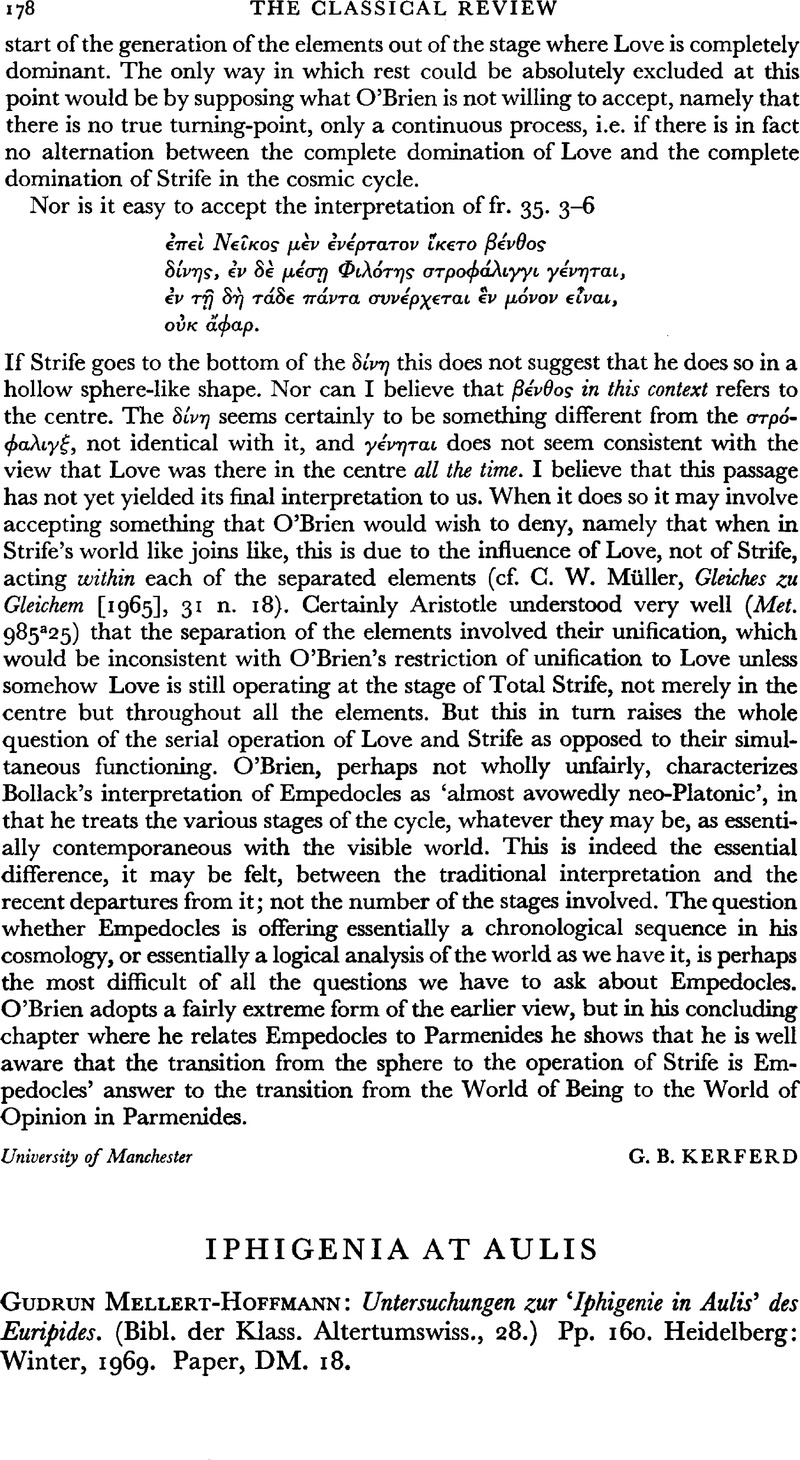No CrossRef data available.
Article contents
Iphigenia at Aulis - Gudrun Mellert-Hoffmann: Untersuchungen zur ‘Iphigenie in Aulis’ des Euripides. (Bibl. der Klass. Altertumswiss., 28.) Pp. 160. Heidelberg: Winter, 1969. Paper, DM. 18.
Published online by Cambridge University Press: 27 February 2009
Abstract

- Type
- Reviews
- Information
- Copyright
- Copyright © The Classical Association 1971
References
1 I cannot allow Funke's howler on p. 289 n. 1 (οἴ at 1267 referred to the Trojans instead of the Greeks), which is unnoticed by Mellert-Hoffmann, to remain unexposed.
2 Dubious parallels abound: p. 96, ἀντιλαβή in iambics is not a ‘vergleichbar Freiheit’ to the division between speakers of anapaestic dimeters; p. 96, προτίων at Pl. Leg. 947 d is a corruption of ποτίμων and therefore irrelevant; p. 97, σύντονα at Hipp. 1361 does not mean ‘gleichmässig’; p. 98, at Andr. 1265 the accusatives are governed more by ἐλθών than by ἴζον; p. 103, no one has yet provided an exact parallel for ὄδε in 72 (in the examples here cited the person referred to by the pronoun has been named closely before: for further examples see Lloyd-Jones, , C.R. lxxix [1965], 241–242)Google Scholar; p. 131, to appeal to the placing of a lyrical duet between iambics in the Phoenissae as an ‘ähnliche Rahmenkomposition’ to the placing of an iambic monologue in the middle of anapaestic dialogue is an eloquent confession of penury.


